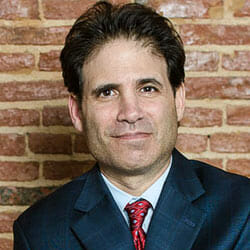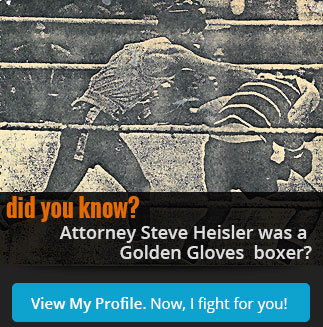When you buy a product that doesn’t work like it should, you expect a refund. However, when you are injured because of a defective product, simply getting your money back doesn’t cut it.
If you, a family member, or a friend find yourself in this situation, you should consider speaking with an experienced and effective Baltimore product liability lawyer — an attorney who regularly handles these types of matters — to investigate the product, evaluate your right to compensation, and protect your rights.
Here, we explain this area of the law in more detail.
What Is a “Product”?
The term “product” is broad and encompasses almost any item that is designed, manufactured, or assembled by a company or a person and then sold, leased, rented, or distributed to the public qualifies. There are limitations, but the law is often interpreted broadly to protect the public from harm.
Does It Matter Who Owns the “Product”?
Sometimes, but not usually. In most cases, anything that is designed, manufactured, or assembled by a company or a person and then sold, leased, rented, or distributed to the public qualifies. It can be a product you, a family member, or a friend was using, or it can be a product that someone else was using that injured you, a family member, or a friend.
What Is a Product Recall?
When a company, the federal government, or consumer groups discover that a product is unsafe when used as intended, the manufacturer is required to issue a notice to retailers to take the product off their shelves. In some cases, notices are also sent to people who bought the products.
Depending on the nature of the defect, the value of the product in question, and other factors, the manufacturer may take recalled products out of circulation or repair them and return them to their owners. For example, when car models have recalled parts, they typically have their dealerships replace the defective parts.
If you suffer an injury because of a product that has been recalled, the timing of the recall, and whether the manufacturer acted promptly and reasonably to protect the public are important factors. Delays, unclear communication or warnings, conflicting statements (a recall followed by public or private denials of a problem), lack of notice, and many other actions or inactions taken during a recall can be the basis for viable claims.
Keep in mind that the fact that a product was recalled does not entitle you, a family member, or a friend who was injured to compensation. It can make it easier to make a claim, but manufacturers and sellers vigorously defend claims made against them and there are any number of legal hurdles that have to be overcome. You should still speak with a lawyer experienced in these matters before you attempt to contact the manufacturer or seller of the product.
What If a Product Hasn’t Been Recalled?
The vast majority of unsafe and defective products are never subject to a recall. Manufacturers and sellers often bury their heads in the sand and fail to investigate incidents and complaints. Whether this is on purpose or not, they often do not want to expose themselves to lawsuits by injured people or scrutiny by the government or consumer groups. Additionally, the government and consumer groups cannot be everywhere at once, they often lack the resources to investigate incidents and complaints, and they often have other priorities.
If you, a family member, or a friend suffers an injury because of a defective product, whether it was recalled or not, you should speak with an attorney who is familiar with these types of claims. You may be entitled to compensation, and people often have to speak up after being injured to make companies, the government, or consumer groups to act.
Why Do You Recommend Talking to a Lawyer Experienced in These Cases?
This is a tricky area of the law. There are any number of technical issues, legal hurdles and requirements, and other issues that arise. There are manufacturers that own their mistakes and do the right thing, but in many circumstances this is not the case. Some defects are obvious, but many are not. And lawyers that regularly handle these types of cases often have access to experts, other lawyers, and information that others do not.
If you, a family member, or a friend are injured as a result of a potentially defective product, it is important to schedule a consultation with a top-notch product injury lawyer as soon as you can.
Types of Dangerous Products
Products can be defective because of a flawed design, a manufacturing error, or due to a lack of warnings or instructions.
With that said, there are many examples of products that are unsafe and regularly cause injury, including:
- Accessibility products (accessible vehicles, scooters, wheelchairs, and others)
- Aerial life devices and bucket trucks
- Automobiles (cars, trucks, sports utility vehicles, vans, people movers, and others)
- Automobile components (airbags, seatbelts, seats, windows, and others)
- Automobiles with inadequate structural integrity (structures that fail in crashes)
- Automobiles without necessary safety devices (collision avoidance technology and others)
- Batteries that catch fire or explode
- Boats and other recreational devices
- Bounce houses
- Children’s car seats (failure to protect children as intended)
- Children’s cribs, clothing (flammable), and toys
- Children’s indoor play areas
- Commercial vehicles that lack safety devices (whether driven by you or others)
- Dental devices
- Drugs and pharmaceuticals
- Elevators and escalators
- Extension cords and electrical items that cause fires
- Firearms (handguns, long guns, and others)
- Four wheelers and other recreational vehicles
- Gas or propane grills
- Heart defibrillators
- Heaters that cause fires or carbon monoxide poisoning
- Hip implants
- Hunting equipment (tree stands and others)
- Industrial machines used at work
- Knee implants
- Medical devices.
- Power tools
- Ropes courses
- Roller coasters and amusement rides
- Tires (aged tires sold as new, tires that come apart during use, and others)
- Toasters and other countertop devices that catch fire
- Tools
- Vapes, pens, and other smoking devices
- Workplace equipment
This list could go on and on.
Also, keep in mind that even properly designed and manufactured products can be unsafe and defective if they lack sufficient warnings or instructions about how they should and should not be used. We’ve had clients that suffered chemical burns while using cleaning products that lacked adequate warnings, clients who have been badly burned due to batteries exploding in their pockets who were not warned of the risk, and others.
Frequently Asked Questions (FAQs)
What if I was partially responsible for my accident?
Unlike many other states, Maryland uses a strict contributory negligence rule in cases involving shared responsibility. This rule bars recovery if you’re found even minimally at fault. Therefore, establishing the product’s defect and its role in causing your injury is crucial, as any fault attributed to you could entirely prevent you from obtaining compensation.
How likely is it that my case will end up in court?
Steve and co-counsel settle most product liability cases during the pre-trial stage. This avoids the unpredictability, stress, and expense of a trial. However, if a satisfactory agreement cannot be reached, we won’t hesitate to go to court to uphold your rights.
How long do I have to file a product liability claim in Maryland?
In Maryland, the statute of limitations for filing a product liability claim is generally three years from the date of the injury. This time limit is strictly enforced, and failure to adhere to it typically results in the loss of the right to seek compensation for your injuries through the courts.
What kinds of evidence are the most important in a product liability claim?
The most important evidence in a product liability claim includes the defective product itself, medical records documenting your injuries, expert testimony on the product’s defect and its causation of your injury, and any documentation of your financial losses (e.g., medical bills, lost wages). Photographic or video evidence of the defective product and the scene of the accident can also be useful.
How much will a Baltimore product liability lawyer cost me?
Our firm works on a contingency fee basis, meaning you won’t pay any upfront costs. Instead, your lawyer’s fees will be a percentage of the compensation you receive from your claim, with the percentage depending on the complexity of your case, whether it goes to trial, and other factors. If we do not get you any compensation, you pay no fee or costs.
How can I check whether a product has been recalled?
To check if a product has been recalled in the United States, you can visit the official website of the US Consumer Product Safety Commission (CPSC). The CPSC provides a searchable database where you can look up recalls by product name, category, or company. For vehicle-related recalls, the National Highway Traffic Safety Administration (NHTSA) website offers a similar search tool and notification service.
Past Case Results
Case Type: Product Liability / Settlement: $455,000
Steve represented the family of a 40-year-old window washer who plunged 30 stories to his death in 2001 at the Baltimore World Trade Center. Steve and associate counsel sued the manufacturers of the safety harness and the rope, alleging that the safety harness malfunctioned when the rope broke. The case settled for $455,000.
Case Type: Product Liability / Settlement: $255,000
Steve represented a 43-year-old convenience store manager who had floor and concrete cleaner splash on both feet while mopping the floor at her store. She suffered third degree chemical burns to both feet requiring multiple surgeries and skin grafting. She now has permanent nerve damage. The case settled for $255,000.
A Baltimore Product Liability Lawyer Helps Protect Your Rights
If you’ve been harmed by a defective product, contact our Baltimore product liability attorney to discuss your situation today. Fill out our online contact form or call us on (410) 625-4878.

Attorney Steve Heisler
Steve Heisler decided in 1996 that he was going to focus his law practice exclusively on injury cases. Since then, he has been representing injured people against insurance companies, disreputable medical practitioners and Big Pharma, and doing it with compassion, honesty and level-headed rationality. [ Attorney Bio ]

